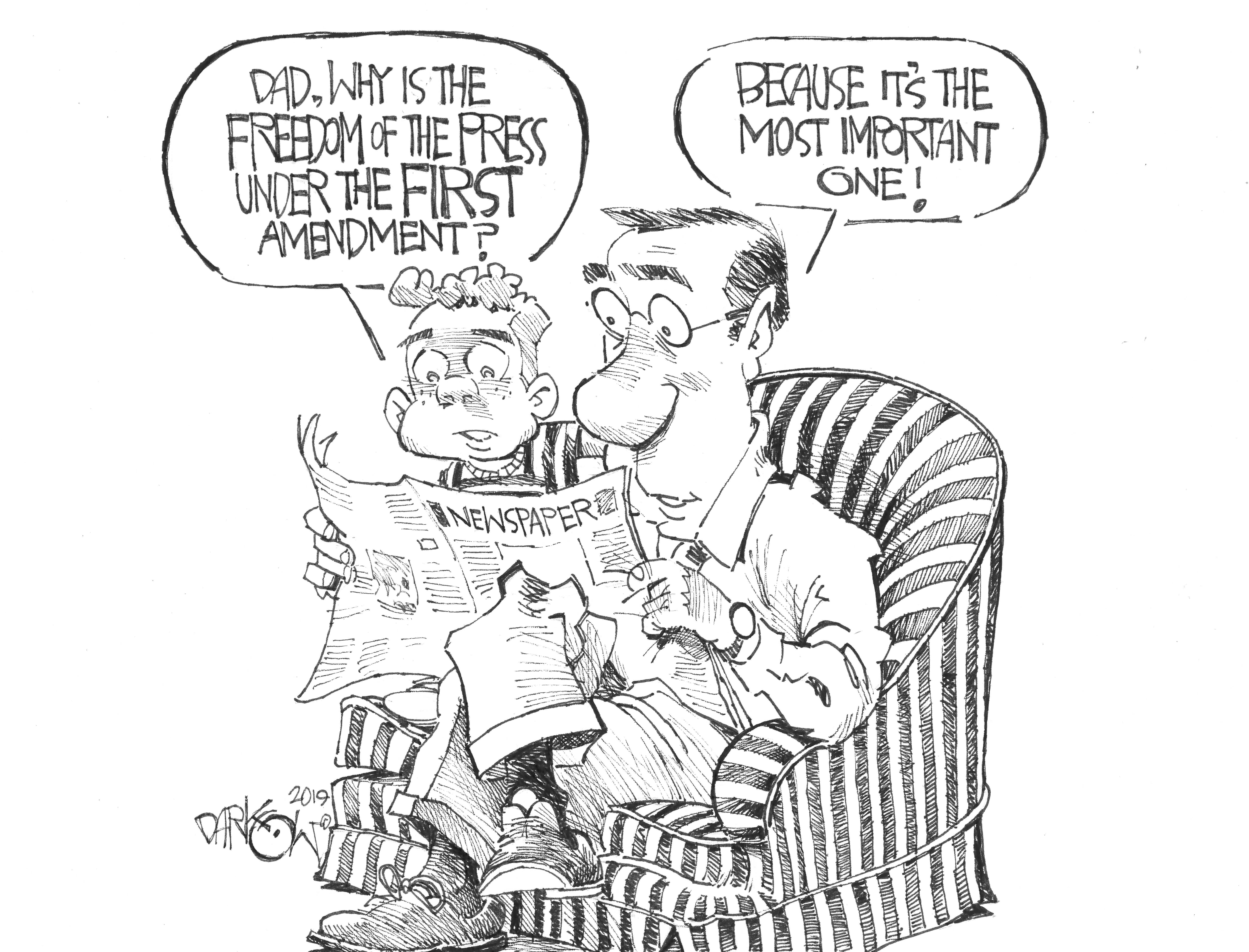‘Fiscal cliff’act only a Band-Aid
Published 10:14 am Wednesday, January 9, 2013
Last week’s passage of “The American Tax Relief Act of 2012,” also known as the Senate-negotiated fiscal cliff agreement, was the political equivalent of treating a severed limb with a Band-Aid. It merely delays the inevitable difficult decision of how to cure our country’s debt crisis while ignoring the injury. Sadly, after months of on-and-off negotiations, the passage of the fiscal cliff deal was no profile in courage.
The Senate deal, which largely passed the House on the strength of Democrat votes, not only fails to address the root cause of our government’s financial crisis – overspending – but it adds insult to injury with $4 trillion in new spending over a decade without a single penny in cuts. Even more insulting to America’s taxpayers, the deal is salted with $70 billion in tax breaks for political friends and pet causes of President Obama and his allies in the Senate.
While the country has grown accustomed to Congress working until Christmas, it has been more than forty years since the House and Senate were voting up until the last day of session. Unfortunately, this year the thought of the New Year did not inspire the majority of lawmakers to look beyond the politics of convenience and press for a better deal.
While it is easy to sit back and criticize unpopular legislation, it is much tougher to offer alternative solutions. The House not only talked the talk but walked the walk during 2012. We passed legislation in May and again in August that respectively addressed devastating cuts to our military through sequestration, and extended expiring federal tax cuts for all taxpayers. In both cases, the Democratically-controlled Senate – backed by President Obama – refused to even bring them forward for debate, and forced an unnecessary, political, end-of-year showdown.
For months now, the president has promoted the idea that simply raising taxes on the wealthiest of Americans will somehow put the country in better financial standing. When presented with the fact that hiking taxes on America’s job creators will not generate enough revenue to make a dent in our country’s annual trillion-plus dollar deficits, the president always responds that they should pay “their fair share.”
The White House has never approached the fiscal cliff talks with a serious eye toward reducing the cause of our country’s debt – government overspending. It has instead focused on penalizing a group of Americans who it perceives as too productive. Never mind the fact that these same Americans already pay a majority of the taxes collected by the federal government and they also own and operate many of the businesses that are struggling in our weak economy. Raising taxes will only put more Americans out of work and prevent many others from getting a job.
To underscore the failure of the fiscal cliff deal to address America’s greatest problem, the credit rating company Moody’s has warned that the federal government must still take serious steps to curb deficit spending before the government’s negative credit outlook is returned to stable.
SourceURL:file://localhost/Users/publisher/Desktop/Jo%20Bonner%20TWIW%2001-07-13.doc @font-face { font-family: “Times New Roman”; }p.MsoNormal, li.MsoNormal, div.MsoNormal { margin: 0in 0in 0.0001pt; font-size: 10pt; font-family: “Times New Roman”; }table.MsoNormalTable { font-size: 10pt; font-family: “Times New Roman”; }div.Section1 { page: Section1; }
As noted previously, the House already passed legislation last year to preserve all the expiring tax cuts and extend other critical middle class tax breaks. I voted against the Senate-negotiated agreement last week because it not only raised taxes on job creators, but it did not offer a single cent in federal spending cuts. Not a penny!
To be clear, there were a number of good things in the bill. It permanently preserves tax cuts for 98 percent of taxpayers as well as permanently protects middle income Americans from the Alternative Minimum Tax. Furthermore, the legislation kept the Death Tax from returning to 55 percent by locking in a 40 percent rate with a $5.1 million threshold and cut the top capital gains rate to 20 percent from 39.6 percent following the expiration of the Bush tax cuts.
The law also repealed a portion of the Obamacare dealing with long-term care that even its sponsors now admit just doesn’t work. It also blocked the $900 pay raise given to Congress by a recent presidential executive order. All of these positive provisions and some others could have been included in a much better deal with spending cuts. Disappointingly, that was not the case.
While the president may have avoided dealing with spending cuts, he cannot continue to do so. In the coming months, Congress will be forced to act on the hundreds of billions of dollars in spending cuts, which were delayed by the fiscal cliff bill, as well as whether to raise the federal debt ceiling.
No amount of class warfare diversion and political smoke and mirrors can escape the fact that America’s credit cards are maxed out and it’s time to start paying the bill.
My staff and I work for you. If I can ever be of service, please do not hesitate to call my office toll free at 1-800-288-8721 or visit my web site at http://bonner.house.gov.
For release the week of January 7, 2013. For more information, please contact Mike Lewis at (202) 225-4931.


